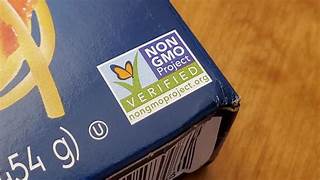Backers of the idea say consumers deserve to know what’s in the food they eat. Critics say labeling is a ploy to make consumers worry.
One of the biggest arguments in the food world these days involves products that have been genetically modified.
Consumer advocates have been pushing for rules requiring companies to label foods that contain ingredients that have been modified for any number of purposes, such as making them resistant to herbicides. Recently, voters in Oregon and Colorado voted down measures to require labeling. Other states, though, have approved labeling, and the Food and Drug Administration’s website says it has received petitions to mandate labeling nationwide but hasn’t made a call on the idea.
The argument for labeling comes down to the right to know: Consumers, the advocates say, should be well informed of what’s in their food. Further, they argue, genetically modifying food carries risks while providing few nutritional benefits.
Opponents say that the fears about GMO foods are overblown, and that in fact the foods are safe and bring benefits. So, labeling foods would give the wrong impression that there’s something dangerous about GMOs, when there isn’t, opponents say.
Andrew Kimbrell, the executive director of the Center for Food Safety, makes the case in favor of labeling. Arguing against labeling is Nina Fedoroff, the Pugh professor emerita at Penn State University.
YES: We Deserve To Know What’s in the Food We Eat
By Andrew Kimbrell
The American public has the right to know what’s in the food they buy and serve their families. That includes the right to choose whether or not to purchase foods produced through genetic engineering. Consumers in 64 other countries have that right, and Americans overwhelmingly want that right. Most polls show that more than 90% of the public favors labeling.
Why label? Genetically engineered foods are materially different than their nonengineered counterparts, and the public has a right to know it. In fact, the DNA in these foods has been patented by biotech corporations as completely new.
Labeling would not be curtailing a technology that is beneficial to the public. No currently commercialized genetically engineered crop substantially increases yield or nutrition. And other cheaper, proven methods are more effective at increasing production.
In fact, the primary use of genetic engineering involves genetically altering crops so they can withstand massive doses of herbicide (mostly Roundup, recently classified a probable carcinogen). And increased herbicide use has led to air and water pollution, created a major problem with herbicide-resistant “superweeds,” and resulted in increased toxic residue on our food.
Moreover, genetic engineering is not safer, nor more efficient nor more predictable than traditional breeding. Genetically engineering crops involves trial and error, mostly resulting in failure.Tinkering with a plant’s DNA might make a nontoxic plant toxic or have other unintended impacts. Without labeling, we can’t fully track those impacts.
Source: http://www.wsj.com/articles/should-companies-be-required-to-label-genetically-modified-foods-1436757040
Critical thinking questions:
- Do you think this kind of food has an impact on life expectancy?
- By labeling products that are genetically modified, do you think most people would buy them or not? Explain.


In my opinion, people should know all the necessary information about the food they are going to consume, so that people make an informed decision about what they are going to buy, as well as the associated risks in the case of genetically modified foods. There is always some fear of this type of food because it is processed and aided by technology. In general, I think that fewer people would buy these products because of a lack of trust in them, but with more information it could also generate more purchases due to the curiosity of trying this type of food.
Based on current scientific evidence, genetically modified foods are considered safe and are not shown to negatively impact life expectancy. However, long-term studies are ongoing, and the overall impact on health is still being explored.
Labeling genetically modified products could lead to a decrease in their sales, as some consumers may avoid them due to health concerns or personal preferences. Others, however, might continue to buy them if they trust scientific evidence about their safety and appreciate the benefits such as lower costs and enhanced crop resilience.
Do you think this kind of food has an impact on life expectancy?
Based on this article, I also agree with the author that this kind of food has a severe impact on people´s life expectancy. The aim of the industries is to sell as much as they can and they do not care about people´s health. There could be some regulations to avoid it, but, at the end, each of us has the right to choose the food we eat.
By labeling products that are genetically modified, do you think most people would buy them or not? Explain
Labeling can help people to inform or advice them if some food is healthy or not, but the consequences or implications of eating food genetically modified will not appear in the labels. Labeling is not the answer to know what are we eating, it will not stop people eat fast / fat food. We deserve to be informed; just like that. In my case, I will not eat food genetically modified.